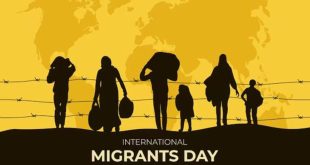Pope Francis met with Iraq’s top Shia cleric the Grand Ayatollah Ali Sistani on Saturday in the southern city of Najaf Ashraf. Over the past few days, the media around the world has focused on this meeting from different perspectives. To tell a single story, they all focused on the recent meeting as a “historic” one.
Peaceful coexistence between different religious followers, challenges facing humanity and the role of faith in overcoming these challenges, religious tolerance and protection of minorities are critical points that media reports mention.
Pope is seeking to build ties with Islam
Reuters points out that Najaf historic meeting is a visit that sent a strong signal for inter-religious dialogue and coexistence, and Wall street journal believes that Pope Francis is seeking to build ties with Islam as he meets the Iraqi Shia Leader. WSJ also mentions the Grand Ayatollah Sistani told the Pope that religious leaders should work against poverty, oppression and war.
Vatican News says that the meeting was an occasion for the Pope to thank the Grand Ayatollah al-Sistani for speaking up – together with the Shia community – in defence of those most vulnerable amid the violence and great hardships of recent years, and for affirming the sacredness of human life and the importance of the unity of the Iraqi people.
The official news information portal of the Pontifical Council reports Pope Francis met this Saturday morning in Najaf with the Grand Ayatollah Sayyid Ali Sistani in a visit which stressed the importance of friendship, mutual respect and dialogue between religious communities.
A powerful message of peaceful coexistence
The American News outlet CNBC reiterates that Pope Francis and Iraq’s top Shia cleric delivered a powerful message of peaceful coexistence on Saturday, and writes Pop Francis thanked Ayatollah Sistani for having “raised his voice in defense of the weakest and most persecuted” during some of the most violent times in Iraq’s recent history.
The report also pointes out that the Grand Ayatollah Ali Sistani is one of the most senior clerics in Shia Islam and his rare but powerful political interventions have helped shape present-day Iraq. He is a deeply revered figure in Shia-majority Iraq and his opinions on religious and other matters are sought by Shia Muslims worldwide.
The narrow alleyway and small home of Najaf
The American NPR mentions footage released by media showed the Pope walking down the narrow alleyway in Najaf to the rented house which the Grand Ayatollah Ali Sistani rarely leaves. Photographs of the meeting showed an austere room, in marked contrast with the lavish presidential palace where the pope addressed dignitaries on Friday.
“The Pope arrived at the Grand Ayatollah Sistani’s small home in a bullet-proof vehicle. As he entered the house, white doves were released, reflecting the themes of this four-day visit to Iraq – peace, reconciliation and inter-faith dialogue. Ayatollah Sistani is revered by the Shia majority in Iraq but his influence across different sects and across the Muslim world runs deep,” News.sky notes.
Religious tolerance and peaceful coexistence
Middle East Eye points out that Leaders of Catholic Church and Shia Islam call for religious tolerance in unprecedented meeting and concludes that the meeting is one of the highlights of Francis’ four-day trip to war-scarred Iraq, where the Grand Ayatollah Sistani has played a key role in tamping down tensions in recent decades.
The London-based online news outlet also quotes Cardinal Miguel Angel Ayuso Guixot, the head of the Pontifical Council for Interreligious Dialogue and a specialist in Islamic studies as saying the Grand Ayatollah Ali Sistani is a religious leader with a high moral authority.
Sacredness of human life
In light of a recent Straits Times report, the Grand Ayatollah Sistani called on world religious leaders to hold great powers to account and for wisdom and sense to prevail over war and, the Pope also called for religious communities to work together.
The English-language daily newspaper based in Singapore mentions that the Grand Ayatollah Sistani is one of the most important figures in Shia Islam, both within Iraq and beyond and, he wields enormous influence over politics.
Turkish Anadolu Agency reports that the meeting focused on challenges facing humanity and the role of faith in overcoming these challenges and quotes the Shia cleric, Grand Ayatollah Ali Sistani, as saying Iraqi Christians should “live like all Iraqis, in security and peace and with full constitutional rights”. AA also mentions that the meeting, which took place at Ayatollah Sistani’s office in Najaf Ashraf, focused on peaceful coexistence between different religious groups in Iraq.
Aljazeera points out that Pop said the Grand Ayatollah Ali Sistani’s message of peace affirmed “the sacredness of human life and the importance of the unity of the Iraqi people”.
The article was written by Leila Yazdan and first published in shafaqna.
 Ijtihad Network Being Wise and Faithful Muslim in the Contemporary World
Ijtihad Network Being Wise and Faithful Muslim in the Contemporary World
